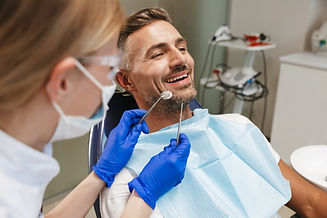01
Introduction
In Germany, a licence to practise medicine is an essential requirement for doctors to be allowed to practise their profession. Doctors who have completed their studies in Germany receive their licence to practise immediately afterwards. For doctors from abroad, the process is usually somewhat more lengthy and takes around one to two years due to various administrative hurdles.
02
Necessity of the licence to practise
In order for foreign doctors to be able to work as doctors in Germany, they must obtain a German licence to practise medicine. This licence is essential in order to use the title ‘doctor’ and to be able to practise in Germany. According to the German Medical Association, around 421,252 doctors were licenced by the end of 2022, including around 59,883 foreign doctors.
03
The path to a German licence to practise medicine
Foreign doctors must apply for a licence to practise at the responsible state or district government. As the content of studies abroad often differs from the German requirements, an equivalence test is carried out.
There are two main groups of procedures:
Doctors with a medical degree from the EU/EEA/Switzerland:
-
EU citizens automatically have a work and residence permit.
-
The application for a licence to practise is submitted to the responsible state or district government.
-
Required documents: German B2 language certificate and C1 specialised language certificate.
-
Normally only one specialised language test is required.
Doctors with a medical degree from third countries:
-
A medical degree completed in their home country and a work and residence permit are required.
-
Required language certificates: CEFR B2 and specialised language certificate C1.
-
Additional documents must be translated and notarised.
-
In most cases, a knowledge test is necessary to prove the equivalence of the training.
Routes to a licence to practise (non-EU degree)

10 steps to your licence to practise


1. acquisition of the German B2 certificate:
Proof of language skills in the form of a B2 certificate from a recognised language school. The brmi Academy offers a tried and tested programme for doctors, dentists, pharmacists and other healthcare professionals. More information here:
Doctors of medicine: https://www.brmi-akademie.de/humanmedizin
Dentists: https://www.brmi-akademie.de/zahnmedizin
Pharmacists: https://www.brmi-akademie.de/pharmazie

2. choice of federal state:
-
Decide in which federal state you would like to apply for a licence to practise.
-
Consider where your chances of obtaining your licence to practise are best and where you would like to live.
-
Training at the brmi-Akademie für Heilberufe qualifies you to pass the specialised language examination in all federal states.

3. translation and notarisation of documents:
-
Translation and notarisation of the required documents.
-
You can find out which documents are required from the relevant licensing authorities. In Hesse, this is the Hessian State Office for Health and Care (HLfGP). Information here: https://hlfgp.hessen.de/akademische-gesundheitsberufe/approbation-und-berufserlaubnisse-abschluss-im-ausland
-
Here you will find a list of the documents you need.

4. preparation of a German-language CV:
-
The CV must be written in German. Translation and layout support services are available.
-
Example:

5. Ärztliches Attest:
-
A medical certificate confirming that the applicant is medically fit to practise the profession is required.

6. proof of the intended commencement of work:
-
Proof that you wish to work in the federal state in which you are applying for a licence to practise is required. This can be a confirmation of residence or a confirmation of employment.

7. application for a licence to practise:
-
Submit the application with all the necessary documents to the responsible state authority.

8. examination of the documents by the state office (e.G. HlfGP):
-
The state office checks the submitted documents for completeness and equivalence of the training content.

9. specialised language testm (FSP):
-
Proof of German language skills in a medical context through the specialised language test.

10. knowledge test:
-
Ensuring that the applicant has the necessary knowledge and skills to practise as a doctor in Germany.
Graduation: Granting of the licence to practise
After successfully completing all the steps and submitting all the necessary documents, you will be granted a licence to practise medicine. The licence to practise medicine is usually sent by post and from this point onwards you are allowed to use the title ‘doctor’ and practise in Germany.




